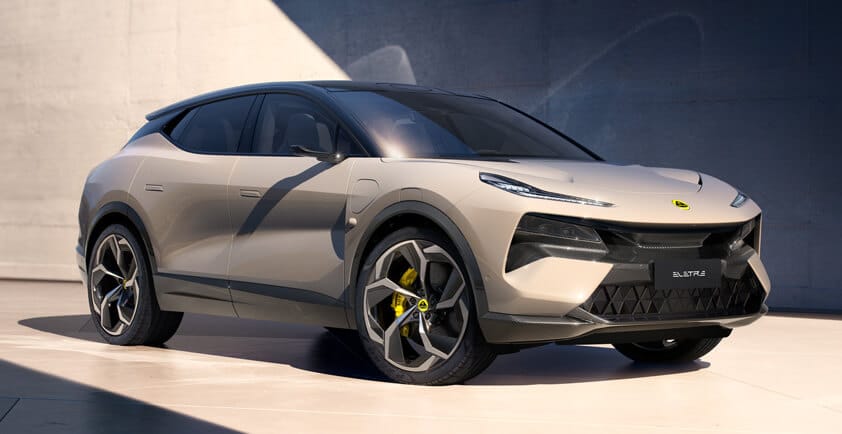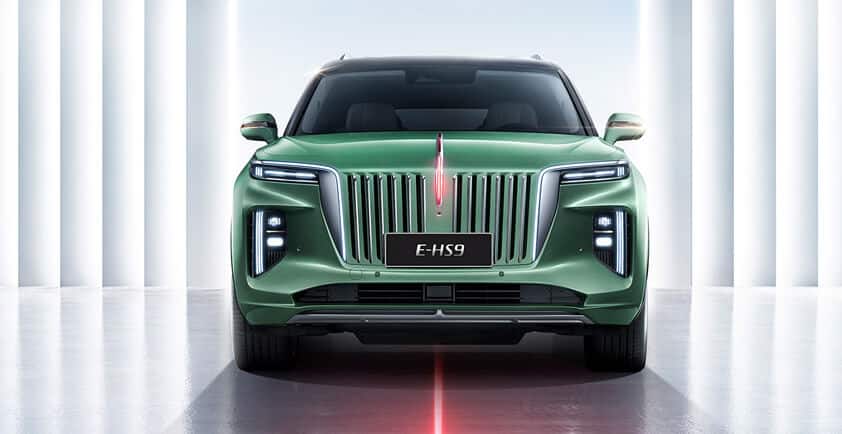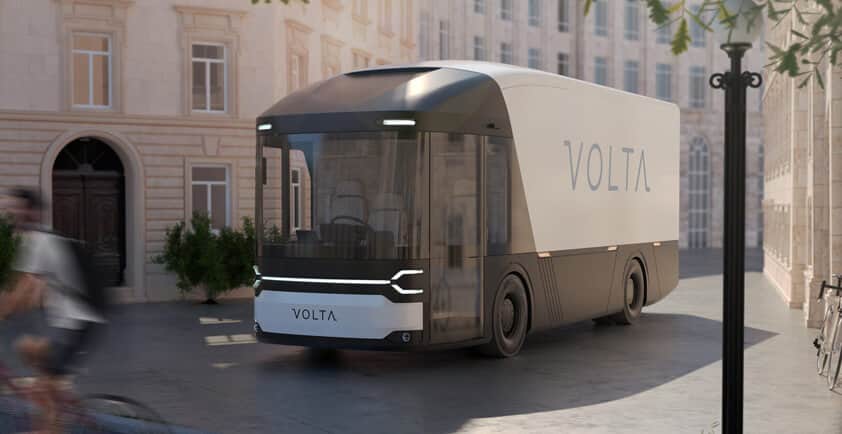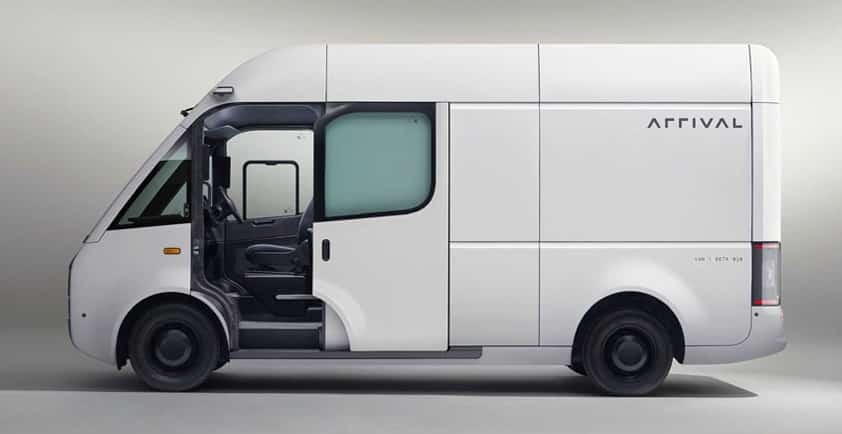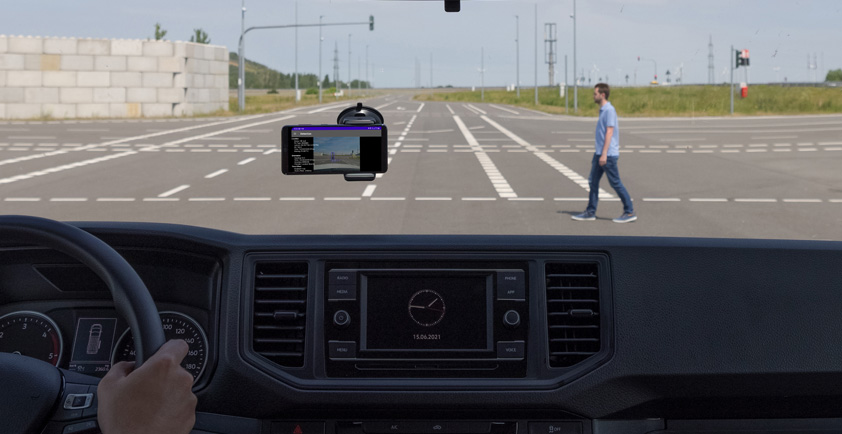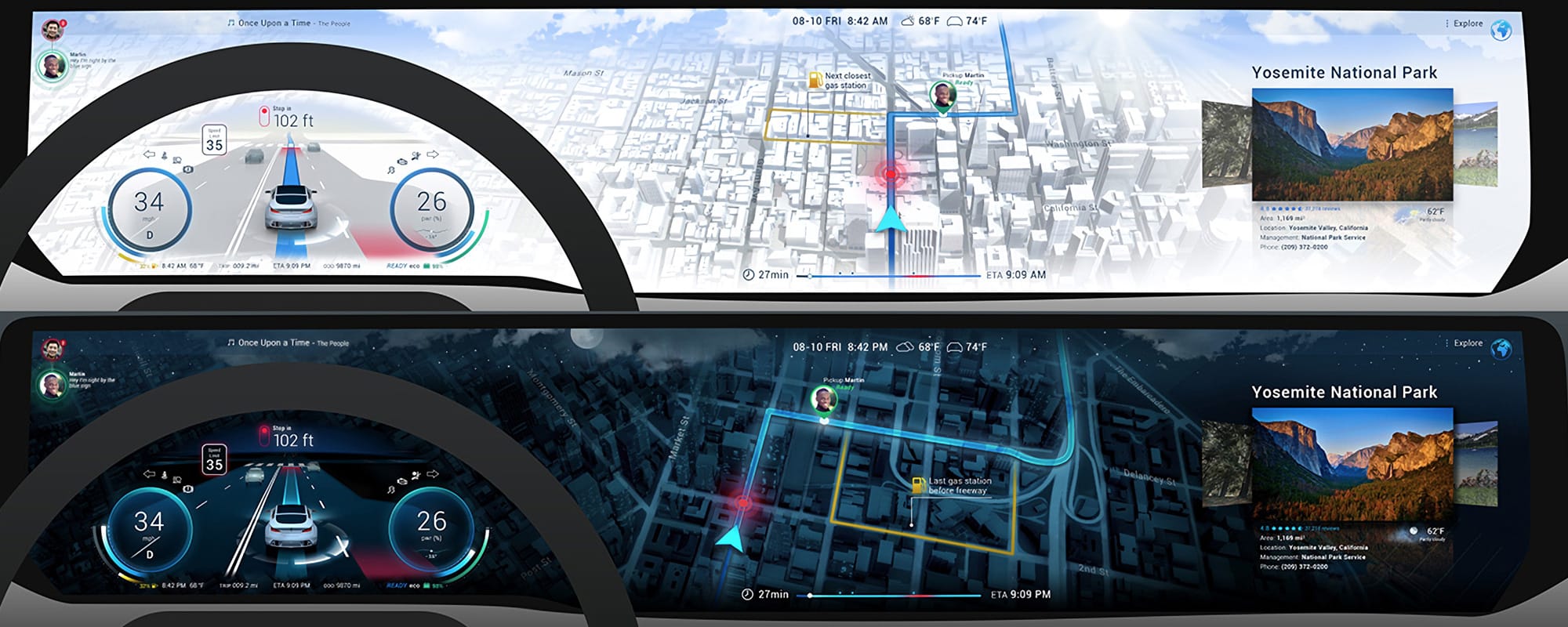
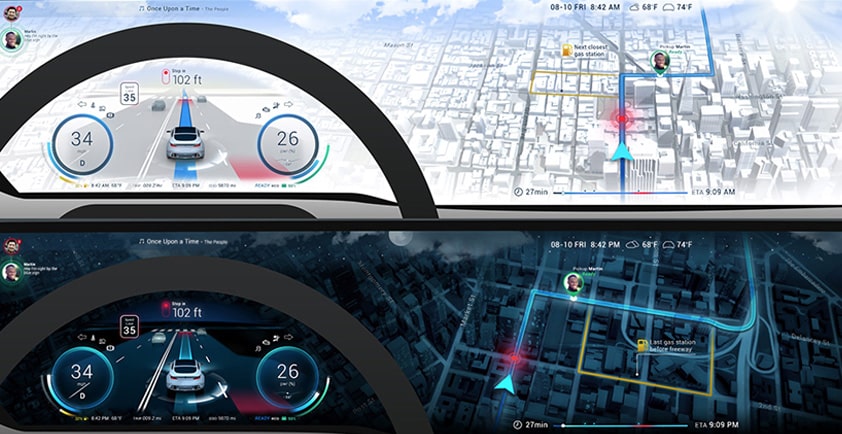
UNITY AND HERE COLLABORATE ON REAL-TIME 3D IN-VEHICLE EXPERIENCES
>> Unity and HERE to showcase their innovative vision for the next phase of embedded, automotive human-machine interface (HMI) user-experiences
Unity, the world’s leading platform for creating and operating real-time 3D (RT3D) content, today announced a collaborative agreement with HERE Technologies, the leading location data and technology platform, to partner on developing next-generation embedded automotive HMIs with state-of-the-art, RT3D rendering capabilities. The collaboration will also extend to work on next-generation location technology for autonomous driving, simulations, city planning and digital twins.
In order to showcase the combined capabilities of Unity’s real-time 3D platform and HERE’s location technology, the partners developed a proof-of-concept application of an embedded in-vehicle-infotainment (IVI) system. Created on Unity’s platform and featuring HERE 3D city data, it showcases a futuristic, wide-screen navigation experience of a 3D map of San Francisco and demonstrates what can be achieved with the addition of game-changing HMI workflow design improvements. To date, HERE has mapped in 3D more than 70 major cities in the US, Europe and Asia with plans to eventually offer global 3D map coverage.
“Car buyers now care more about interactivity with their vehicle than horsepower or fuel-efficiency. Unity’s work with HERE opens up the ability to meet consumer demand, providing a continuous user experience across all displays powered by Unity and our ecosystem,” said Julien Faure, Vice President, Verticals at Unity. “By working with industry leaders like HERE, we feel that Unity has the potential to power dynamic infotainment, immersive augmentation, and geospatial and media experiences all integrated into a seamless user experience.”
While several dedicated HMI development solutions currently exist in the automotive industry, this collaboration will combine elements of automotive-grade map data and services with an advanced real-time 3D engine that brings dynamic, high-end design capabilities to the automotive user-experience in terms of maps, infotainment and more.
“The goal of our collaboration with Unity is to meet our customers’ desire for an in-car navigation experience that’s an engaging representation of reality,” said Jorgen Behrens, Chief Product Officer, HERE Technologies. “Unity’s robust 3D rendering engine makes HERE 3D city data, route guidance and navigation look impressive, providing a rich and immersive in-dash experience to the driver.”
This collaboration underscores the companies’ commitment to developing the next generation of automotive HMIs. The HERE and Unity PoC application successfully runs on Qualcomm Snapdragon and in 2020, Unity announced collaborations with multiple companies across the HMI ecosystem, including Continental AG’s Elektrobit and NXP Semiconductors.
HERE is the leading provider of map content and location-based services to the global automotive industry. Today, the company delivers end-to-end solutions for connected vehicles, in-vehicle infotainment and automated driving. HERE is a private company owned by global brands: Mercedes-Benz AG, BMW AG, Audi AG, Mitsubishi Corporation, NTT, Intel Capital, Bosch, Continental, and Pioneer.
About Unity
Unity is the world’s leading platform for creating and operating real-time 3D (RT3D) content. Creators, ranging from game developers to artists, architects, automotive designers, filmmakers, and others, use Unity to make their imaginations come to life. Unity’s platform provides a comprehensive set of software solutions to create, run and monetize interactive, real-time 2D and 3D content for mobile phones, tablets, PCs, consoles, and augmented and virtual reality devices. The company’s 1,800+ person research and development team keeps Unity at the forefront of development by working alongside partners to ensure optimized support for the latest releases and platforms. Apps developed by Unity creators were downloaded more than three billion times per month in 2019 on more than 1.5 billion unique devices.
